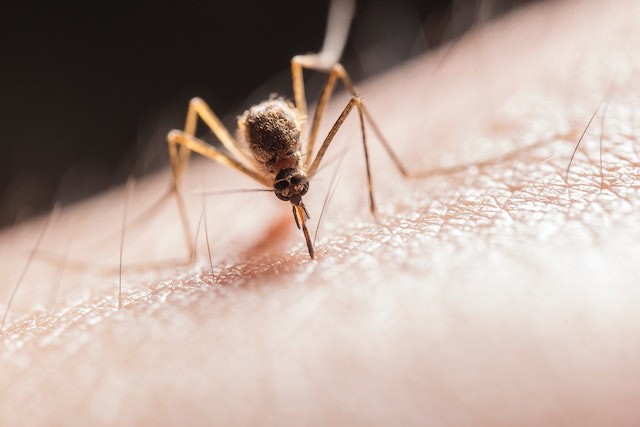
Many fear sharks, as reflected in movies like "Jaws" and "The Shallows." Some said that they are afraid to swim in the ocean due to potential encounters with sharks, but the deadliest animal is something that some even encounter daily.
What Animal Kills the Most Humans?
A 2015 Ipsos survey found that about 40% of Americans fear swimming in the ocean because of sharks, while almost half of Americans stated they are "absolutely terrified" of sharks. The Florida Museum of Natural History reports that in 2021, there were just 11 shark-related fatalities globally, USA Today reported. According to the Australian Institute of Marine Science, a falling coconut poses a greater risk of killing you.
Larger animals like sharks or hippos would seem like the most plausible suspects. However, in reality, mosquito kills the most people each year.
According to the World Health Organization, mosquitoes that carry diseases kill 725,000 people annually. They can also transmit deadly diseases, including malaria and dengue.
According to the WHO, mosquitoes can transmit many life-threatening diseases, including dengue, chikungunya, lymphatic filariasis, Rift Valley fever, Yellow fever, Zika, malaria, Japanese encephalitis, and West Nile fever. Other insects, such as ticks, fleas, and lice, also spread similar infections.
Here are the other deadly animals to humans, per Discover Wildlife:
- Freshwater snails: 200,000 deaths per year
- Saw-scaled viper: 138,000 deaths per year
- Assassin bugs: 10,000 deaths per year
- Scorpions: 2,600 deaths per year
- Ascaris roundworms: 2,500 deaths per year
- Saltwater crocodiles: 1,000 deaths per year
- Elephants: 500 deaths per year
- Hippopotamus: 500 deaths per year
How to Keep Mosquitoes Away?
Some areas have more mosquito fatalities than others. For instance, over 96% of malaria deaths, according to WHO, occur in African nations.
Malaria, chikungunya, and dengue are all common in Southeast Asia. Here are some tips from Better Health to keep mosquitoes away.
1. Maintain fly screens
Keep your window, door, vent, and chimney fly screens in good condition. If you want to keep out other tiny biting insects, like sandflies, use an even coarser mesh (screens should be no coarser than 12 × 12 meshes per 25mm or 1.2mm).
2. Use insect spray and repellents
'Knockdown' fly spray can eliminate mosquitoes in your house.
In enclosed outdoor spaces like verandahs and decks, utilize plug-in mosquito vaporizers or diffusers with repellent-treatment pads. As soon as the space is empty, these should be turned off.
Apply a potent insect repellent with picaridin or diethyltoluamide (DEET) on all exposed skin.
Use mosquito coils when you're outside. These need to be constantly watched over. In regions where mosquitoes tend to rest, a long-acting surface spray may be used if mosquitoes are a significant problem. Spraying dense, shady bushes and trees near your home will help you target these areas. Do not squirt these substances close to fishponds. To use any insecticide safely, always read the directions.
3. Limit mosquitoes from breeding
Mosquitoes that breed in your yard and garden are likely to bite you! Even the smallest amounts of water are sufficient for mosquito breeding. Eliminate standing water to prevent mosquito breeding. Clear your yard, cover or turn over trailers and other water-holding structures, clean your gutters frequently, mend leaky faucets, and replace the water in your pets' drinking bowls, bird baths, and vases. Maintain the lawns and gardens, as well as the fishpond and pool.
RELATED ARTICLE : How Often Mosquitoes Bite: Know Why Temperature Plays A Major Role In The Spread of Mosquito-Borne Diseases
Check out more news and information on Mosquitoes in Science Times.
© 2026 ScienceTimes.com All rights reserved. Do not reproduce without permission. The window to the world of Science Times.












